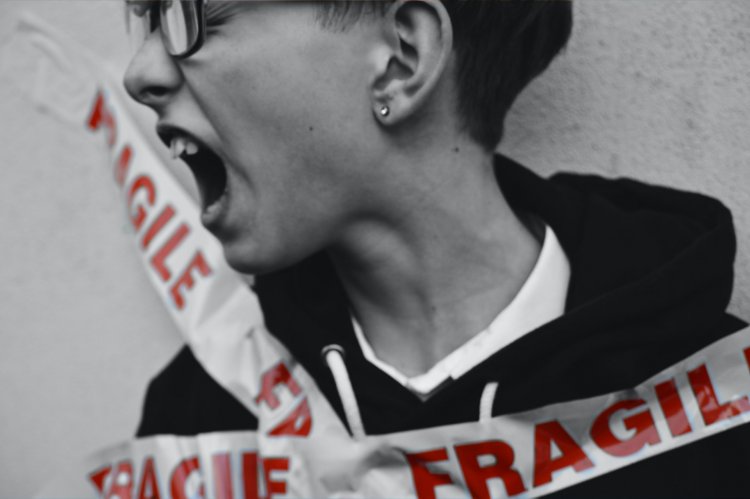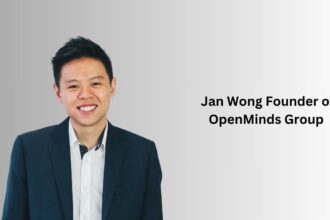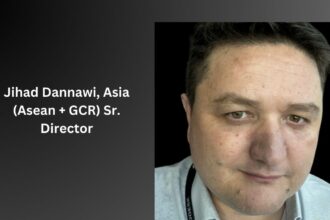In these digitised times, none of us are strangers to the concept of cyberbullying. But at what scale does online harassment occur, how does it affect the people on the receiving end of it, and what might be possible solutions to the problem?
This was the subject of a recent Clubhouse discussion organised by the Content Forum, titled “Cyberbullying: They Asked For It”. Featuring guests Ain Husniza, Hunny Madu, and Hafiz Hatim, the session was a no-holds-barred conversation about dealing with toxicity online.
Sharing her experience of online gaming communities, student advocate Ain said that children were particularly vulnerable to abuse – from both predatory adults, as well as their own peers.
“Children are innocent; they go online thinking that they just want to make friends but there are people who will take advantage of that. I’ve received unsolicited pictures myself… and I’ve had friends as young as 11 being asked to send their own pictures to people,” she said.
Ain added that what her parents taught her about staying safe online, from a young age, had prepared her and protected her from online harassment to an extent. However, even she was not prepared for the amount of abuse that would be levelled at her when she chose to publicly speak up against a rape joke made by her teacher recently.
“I was shocked because people weren’t just attacking me over the issue itself, but they were making character assassinations – my personality, my body, just attacking me for being myself. There was a Facebook group of more than 100,000 teachers, discussing my case once it went viral – the comments really shocked me. They were body-shaming me, making comments about my body and sexualising me. It really shone a light on how some Malaysians are acting online,” she said.
Meanwhile, celebrity TV host Hunny Madu spoke about the pressure public figures face in trying to maintain a dual identity, expressing that this was especially so for women. While remarking that some celebrities may choose to minimise judgement from the public by holding back their personality on social media, Hunny found it best to be herself.
“I used to do a lot of hosting for TV and I was hosting a serious talk show, so my image was always about respecting the market. But it wasn’t the real me so I felt like I had a curtain over a fragment of my life. When I started working out, I realised I was comfortable with who I am – whatever I showed on Instagram is who you will see in real life. When I grasped that concept, I realised I’ve got nothing to hide. Take me as I am, I don’t want to hide anymore. I believe it’s about owning yourself, finding your power and being comfortable with yourself if you want to be a public figure” she said.
Speaking from his perspective as a father, radio announcer Hafiz joked that he would never let his daughter have social media if he could but that would not be fair or feasible. “Frankly, the best thing I can do is monitor what she watches, guide and educate her. It boils down to parents sharing with their children about the potential threats that are out there. It’s all about our relationship with our kids and how open we are with them about all this,” he said.
All three guests also shared that the pile-on of hatred and negative comments from hundreds of strangers online can be overwhelming. Commenting on the nature of ‘cancel culture’ for instance, Hafiz said that it was not right for people to gang up on someone for one mistake on social media, going to the extent of demanding that they be fired. “Sometimes people don’t understand the full context of a matter, but they’ll just jump on the bandwagon. And I’m thinking: do we really want someone to get fired because of a TikTok video they made?” he added.
Ultimately, the end goal is to find ways to make online spaces safer and accessible to all. As Ain put it: “Everybody has the right to use the internet and feel safe while using the internet. But I have experienced more abuse online than I have ever done in real life. The internet is becoming more and more integral to our lives and we need a better approach to this problem rather than invalidating victims by telling them to just shut down the computer.”
The discussion is part of an ongoing series by the Content Forum, to create awareness over its current public consultation for proposed revisions of the Malaysian Communications and Multimedia Content Code (Content Code). Drawn up by the Content Forum and introduced in 2004, the Content Code is a set of guidelines that outline best practices and ethical standards for content creation and curation.
“By having these open conversations, we’re hoping to encourage more people to give their feedback, ideas, and opinions about these revisions,” said the Content Forum’s Executive Director Mediha Mahmood. “This discussion, for instance, is relevant to our proposals for mitigating online abuse and gender-based violence within online spaces. On our end, we want to gather as much feedback as possible because the more input we get, the more likely the Content Code will reflect the standards of Malaysian society, which is the measurement used for us to determine the best practices in the Code. At the end of the day, this is a joint community effort, and our way of creating safer and inclusive digital spaces.”
To listen to the full session on Clubhouse, go here. For more information on the Content Code and to give your feedback, go here.
















